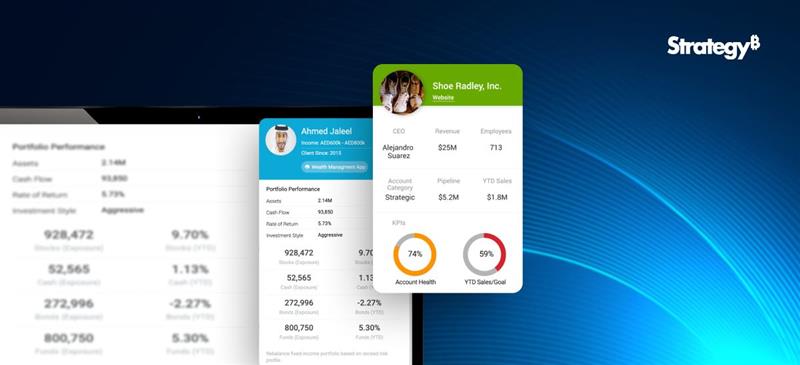What is Tableau Desktop:
Tableau Desktop is a desktop-based version of the software that is installed locally on your computer. It provides a user-friendly interface that allows users to create interactive visualizations, reports, and dashboards by dragging and dropping data onto the canvas. Tableau Desktop supports a wide range of data sources, including spreadsheets, databases, and cloud-based services. It also provides advanced features such as calculated fields, table calculations, and data blending. Users can save their work locally or publish it to Tableau Server or Tableau Online.
For the purpose of learning and exploring dashboards developed by various users online, Tableau Public can also be utilized. This free-to-use feature allows users to create interactive visualizations and publish them on the web. It is designed to help users of all skill levels, from beginners to advanced analysts, to explore, create, and share data visualizations online.
Key features of Tableau Desktop
- • Powerful and flexible: Offers a full range of features for data analysis and visualization, allowing for deep customization.
- • Fast performance: Enables quick data exploration and visualization creation due to local processing power.
- • Offline functionality: Work on your visualizations even without an internet connection.
- • Customization options: Provides control over server configuration and some customization options.
- • Cloud-based convenience: Accessible from anywhere with an internet connection, facilitating remote work and collaboration.
- • Scalability and ease of use: Highly scalable to fit various team sizes and offers a user-friendly interface for sharing insights.
- • Reduced IT burden: Tableau handles maintenance and upgrades, freeing up your IT resources.
- • Always up-to-date: Ensures access to the latest features and functionality without manual updates.
- • Fast performance.
- • Offers a wide range of features for data analysis and visualization, including data blending, calculations, and advanced chart types.
- • Enables complete customization of dashboards and views to meet specific needs.
- • Provides a familiar desktop application experience for many users.
- • Leverages local processing power for quick data manipulation and visualization creation.
- • Ideal for working with large datasets or complex calculations.
- • Enables smooth interaction with dashboards and visualizations.
- • Individual data analysts and creators exploring complex datasets.
- • Building custom dashboards and reports for specific departments or projects.
- • Creating prototypes and mockups for data visualizations.
- • Secure on-premises deployment.
- • Collaboration and sharing.
- • Scalability for on-premises.
- • Customization options.
- • Data remains on your own infrastructure, ideal for organizations with strict data security and compliance requirements.
- • Enables real-time collaboration on visualizations with colleagues.
- • Can be scaled to accommodate growing teams and increasing data volumes.
- • Offers some control over server configuration and customization of user roles and permissions.
- • Financial institutions and healthcare organizations with sensitive data.
- • Sales teams collaborating on sales performance dashboards.
- • Large enterprises with a high volume of data users.
- • IT administrators managing user access and security settings.
- • Cloud-based convenience.
- • Scalability and ease of use.
- • Reduced IT burden.
- • Always up-to-date.
- • Accessible from any device with an internet connection, facilitating remote work and collaboration.
- • Highly scalable to fit various team sizes, from small teams to large enterprises.
- • Tableau handles server maintenance, upgrades, and security patches.
- • Provides access to the latest Tableau features and functionalities like Tableau Pulse and AI capabilities for next-gen experiences
- • Remote teams working on data analysis projects together.
- • Small and medium-sized businesses looking for a quick and easy BI solution.
- • IT departments with limited resources to manage on-premises BI infrastructure.
- • Organizations that need to stay current with the latest data visualization trends.
What is Tableau Cloud (formerly Tableau Online):
Tableau Online is a cloud-based version of the software that allows users to access and share their Tableau visualizations, reports, and dashboards from anywhere with an internet connection. It provides the benefit of being able to collaborate with other users in real time. Users can connect to various data sources and perform advanced data analysis using features like calculated fields and table calculations. Tableau Cloud also provides a range of sharing options, including embedding dashboards in websites and sharing them via email.
Tableau Pulse is available on Tableau Cloud, empowering every employee with intelligent, personalized, and contextual insights delivered in the flow of work. Tableau Pulse leverages generative AI to present insights in both natural language and visual formats, simplifying the process of identifying critical metrics, gaining actionable insights, posing questions, and connecting data to real-world business scenarios. Integrated with the AI capabilities of the Einstein Trust Layer, a secure AI architecture, Pulse ensures that teams can harness the power of generative AI while safeguarding their customer data.
Key features of Tableau Cloud
Tableau Desktop, Tableau Server, and Tableau Cloud: A Comparison
Let’s dig deeper into the capabilities of Tableau Desktop, Server, and Cloud, exploring how each solution can empower organizations to make use of the full potential of their data and drive actionable insights:
1. Tableau Desktop
What does Tableau Desktop Offer You:
Benefits of Tableau Desktop:
Tableau Desktop Use Cases:
2. Tableau Server
What Does Tableau Server Offer You:
Benefits of Tableau Server:
Tableau Server Use Cases:
3. Tableau Cloud (formerly Tableau Online)
What Does Tableau Cloud Offer You:
Benefits of Tableau Cloud:
Tableau Cloud Use Cases:
Tableau Pricing
Tableau provides flexible pricing options tailored to different organizational needs. Pricing is based on factors such as headcounts, licensing type, and specialized roles. Users can opt for individual licenses suited to their specific requirements.
For per-user licenses, Tableau offers three distinct options, allowing users to select the most suitable plan for their needs. Additionally, Tableau provides flexibility in licensing models, including role-based, usage-based, or core-based options for embedded analytics.
Tableau offers three pricing editions ranging from $15 to $70, catering to various budgetary constraints. Users can explore the features and capabilities of each edition through a free trial before deciding. Evaluate the different pricing editions to determine which aligns best with your budget and requirements.
Tableau Creator
Includes: Tableau Desktop, Tableau Prep Builder, Tableau Pulse, and one Creator license on Tableau Cloud
Pricing: $70.00 (1 User Per Month)
Tableau Viewer
Includes: Tableau Pulse and one Viewer license of Tableau Cloud
Pricing: $15.00 (1 User Per Month)
Learn More: https://www.tableau.com/pricing/teams-orgs
Book a Tableau Free Trial
Are you all in for a free demo? Connect with us: Tableau Free Trial
Disclaimer:
The pricing information provided in this blog for Tableau products and services is subject to change at any time without notice. The pricing may vary based on factors such as promotions, changes in pricing policies, or updates from Tableau. We recommend visiting the official Tableau website or contacting Tableau sales representatives for the most current pricing information. This blog is not responsible for any discrepancies or changes in pricing.




